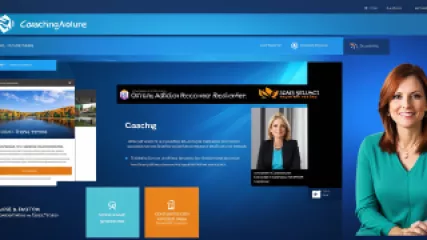Insights from a Substance Abuse Coach: A Deep Dive into Online Coaching
Insights from a Substance Abuse Coach: A Deep Dive into Online Coaching
In recent years, the field of addiction recovery has seen a significant shift towards online platforms and virtual support systems. With the rise of technology and the increasing accessibility of the internet, individuals seeking help for substance abuse now have the option to receive counseling and coaching from the comfort of their own homes. To gain a better understanding of this growing trend, we had the opportunity to sit down with Natalie Perry, a highly experienced substance abuse coach who specializes in online coaching. In this interview, she shares her insights and perspectives on the benefits, challenges, and future potential of online coaching in addiction recovery.
The Benefits of Online Coaching in Addiction Recovery
When asked about the advantages of online coaching in addiction recovery, Natalie Perry highlighted several key benefits. One of the primary advantages is the flexibility it offers to both clients and coaches. Online coaching eliminates geographical barriers, allowing individuals from all over the world to access the support they need. Perry explains, "With online coaching, clients can connect with coaches who specialize in their specific needs, regardless of their location. This opens up a world of possibilities for finding the right fit."
Another significant benefit of online coaching is the convenience it provides. Traditional counseling often requires individuals to commute to appointments, which can be challenging for those with busy schedules or limited transportation options. Online coaching eliminates these barriers by allowing clients to participate in sessions from the comfort of their own homes. Perry notes, "This convenience factor makes it easier for individuals to prioritize their recovery without sacrificing other important aspects of their lives, such as work or family commitments."
Furthermore, online coaching offers a certain level of anonymity and privacy that may be appealing to individuals who are hesitant to seek help in traditional settings. Perry emphasizes, "For many people struggling with substance abuse, the fear of judgment or stigma can be a significant barrier to seeking support. Online coaching provides a safe and confidential space where clients can share their experiences without fear of being stigmatized."
The Challenges of Online Coaching in Addiction Recovery
While online coaching brings numerous benefits, it also comes with its own set of challenges. One of the primary concerns is the potential lack of in-person connection. Perry acknowledges, "In traditional counseling settings, there is a physical presence that can create a deeper sense of connection and trust between the client and coach. Online coaching requires coaches to find alternative ways to establish rapport and build that therapeutic alliance."
Another challenge is the potential for technological issues. Reliable internet connection and access to appropriate devices are essential for successful online coaching sessions. Perry advises, "Both coaches and clients need to ensure they have a stable internet connection and the necessary technology to conduct sessions effectively. It's important to address any technical difficulties promptly to minimize disruptions to the coaching process."
Moreover, online coaching may not be suitable for everyone, especially those who require more intensive or specialized care. Perry cautions, "While online coaching can be highly effective for many individuals, it's crucial to assess whether it aligns with the specific needs of each client. In some cases, a combination of online coaching and in-person therapy or a residential addiction recovery program may be more appropriate."
The Future of Online Coaching in Addiction Recovery
As technology continues to advance and virtual platforms become more sophisticated, the future of online coaching in addiction recovery looks promising. Perry believes that the integration of artificial intelligence (AI) and virtual reality (VR) could revolutionize the field. She explains, "AI-powered tools can enhance the coaching experience by providing personalized feedback, reminders, and resources tailored to each individual's unique circumstances. VR technology, on the other hand, has the potential to create immersive therapeutic environments that simulate real-life situations and triggers."
Perry also emphasizes the importance of ongoing research and collaboration in further developing online coaching practices. She suggests, "Continuous evaluation and improvement are essential to ensure that online coaching remains evidence-based and effective. Collaboration between addiction specialists, technology experts, and researchers can help shape the future of this field and optimize outcomes for clients."
"With online coaching, clients can connect with coaches who specialize in their specific needs, regardless of their location. This opens up a world of possibilities for finding the right fit." - Natalie Perry
Conclusion
Online coaching is transforming the landscape of addiction recovery by providing individuals with accessible, convenient, and confidential support. With its numerous benefits, including flexibility, convenience, and anonymity, online coaching has the potential to reach a wider audience and improve the overall effectiveness of addiction recovery programs. While there are challenges to overcome, such as establishing rapport and addressing technological issues, the future of online coaching looks promising, especially with the integration of AI and VR technologies. As we continue to explore and refine online coaching practices, it is crucial to prioritize ongoing research, collaboration, and the individual needs of clients to ensure the best possible outcomes in addiction recovery.






